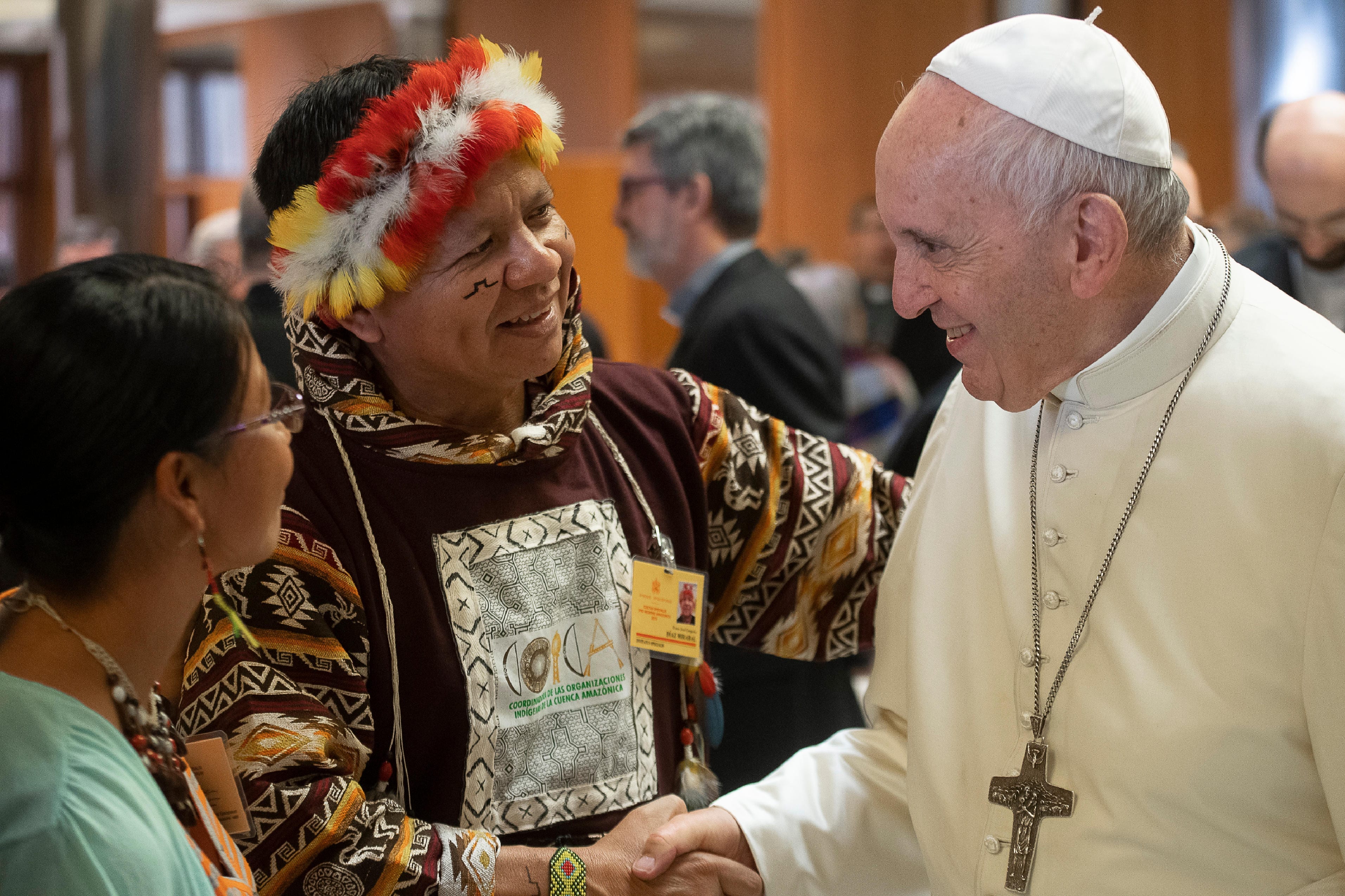
The Catholic Church recently issued a statement formally repudiating concepts that fail to recognize the inherent human rights of Indigenous peoples, including the legal and political “doctrine of discovery.” Like other Indigenous Catholic leaders, Sr. Priscilla Solomon, an Ojibway member of the Anishinabek Nation and a Sister of St. Joseph of Sault Ste. Marie, expressed a mix of joy and concern in her reaction to the Vatican’s statement.
Solomon stated, “I read both statements with a mix of joy and concern. While I am supportive of the joint statement and the Canadian Conference of Catholic Bishops’ statement, I have some concerns.” She expressed gratitude for the Church’s acknowledgment of Indigenous peoples’ dignity and their right to have it respected, saying, “I was grateful that the Vatican, through its dicasteries, has spoken up and begun to address the issue directly.”
However, Solomon believes the statement is a step towards more dialogue rather than a final or complete statement on the matter. She expressed, “I would like to think of this statement as one step taken for more dialogue, rather than a final or complete statement because I think it does not acknowledge or address several issues.”
In her response, Solomon questioned why the Vatican would not rescind the three papal bulls responsible for the dispossession of Indigenous peoples’ lands, history, and dignity. She also asked if the Church could challenge governments to recognize and address the historically and politically manipulated impacts of those bulls, stating, “Could it use its voice with governments, challenging them to recognize and address the historically and politically ‘manipulated’ impacts of those bulls?”
However, Solomon believes the statement is a step towards more dialogue rather than a final or complete statement on the matter.
Although the Vatican’s statement claims the papal documents in question were never considered expressions of the Catholic faith, Solomon countered, “While this can be true for the Church magisterium, it is not how Indigenous people have understood or experienced them. I think they have also been interpreted as Catholic belief by many Catholics simply because Catholics have not been challenged to think otherwise.”

She also raised concerns about the implications of the words “certain scholars“. She thinks these words imply that those scholars, some of whom are Indigenous, are not credible, saying, “I know there are such Indigenous scholars, and this particular sentence leaves me with the feeling that they are being discredited, even if unintentionally. I realize that my reaction to the use of the words ‘certain scholars’ may be my personal response and that the writers may have intended that sentence to acknowledge that there are scholars who disagree with them.”
“I am particularly grateful for the strength of the message in paragraph 7 of the statement. I am hoping that the commitment to respect for every human being enables the Catholic Church to dialogue with Indigenous Catholics whether they are church-goers or not, and whether they are Catholic or not. I am also grateful that the statement repudiates not only the legal doctrine of discovery but all the “concepts that fail to recognize the inherent human rights of Indigenous peoples…” Perhaps that can assist the Church to find concrete ways to support and apply the principles of the UN Declaration on the Rights of Indigenous Peoples.”
“I am hoping that the commitment to respect for every human being enables the Catholic Church to dialogue with Indigenous Catholics whether they are church-goers or not, and whether they are Catholic or not.”
Solomon viewed the announcement of an academic symposium involving Indigenous and non-Indigenous scholars as good news, stating, “For me, the CCCB statement’s disclosure of the proposed academic symposium with Indigenous and non-Indigenous scholars is very good news. Hopefully some of the participants will be traditional Indigenous elders who have already spent years working on understanding, articulating their struggles and trying to address the doctrine of discovery.”
In summary, Sr. Priscilla Solomon sees the Vatican’s statement as a step forward, but she calls for more dialogue and a deeper examination of the implications of the doctrine of discovery. The forthcoming academic symposium offers an opportunity for further engagement between Indigenous and non-Indigenous scholars and could potentially shed more light on this complex and painful historical issue.
